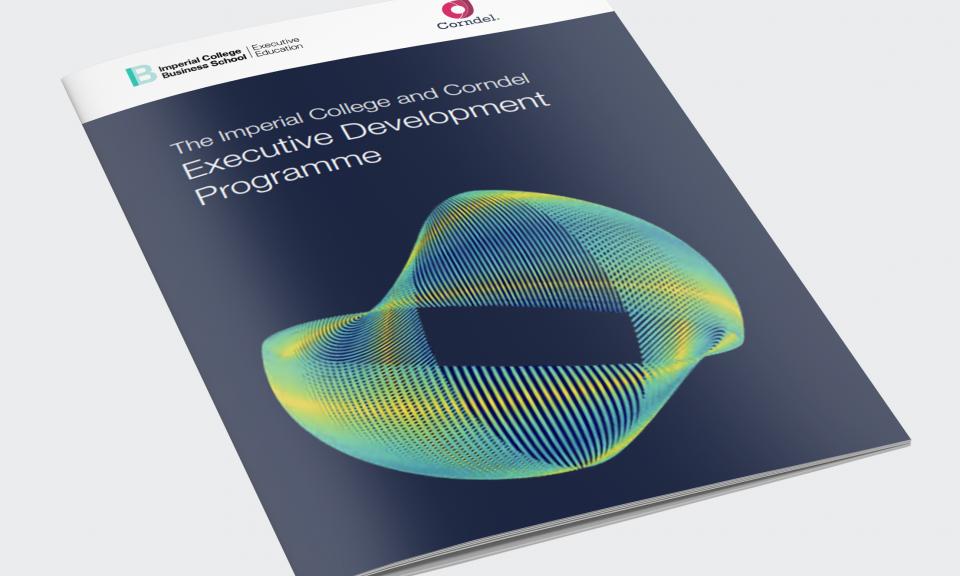
Ronnie Screwvala, 64, serial entrepreneur, philanthropist, and author, has commissioned a telling new report titled ‘Non-linear Thinking’, which he puts forward as an alternative line of thought to propel India to its true potential. Non-linear thinking assumes a higher level of risk than normal, where past experiences do not define future ones. In an exclusive conversation with Fortune India, Screwvala, who co-founded upGrad, South Asia’s largest higher edtech company, explains the report’s thesis in detail. Edited excerpts.
A CHANGE IN MINDSET
Q. First things first, Ronnie. What prompted you to commission this report on non-linear thinking? Was there a particular trigger?
I think, having written a book on entrepreneurship—I’m writing one more which is more on upskilling and soft skills—and also what one actually is in direct touch with at upGrad, gave me a sense of what are the gaps we really have in many of the things we are thinking about. The Prime Minister, and everyone else, evangelises the fourth industrial revolution. But at the end of the day, I think we are going to have to make a mindset change. The nation, and everyone inside it—not just one or two people—have to change their mindsets.
This research was really to probe the mindsets. I am a firm believer that you need to know the baseline. You need to know what people are thinking. So while I’m very pleased with the outcome, to me it’s the starting point. Because it’s almost like a baseline survey that’s telling me more than what it’s solving for. But it was a very important element. Because there were a lot of hypotheses in my mind about what the younger generation is thinking. If you continue to look at what I would call the ‘arbitrage economy’ that India has been used to, then we’re not entering the fourth industrial revolution.
So having been an example all my life of non-linear thinking—sometimes it’s worked, many times it hasn’t—I would say twice it’s worked out of every 10 times, [there’s] also the element of risk-taking that goes with that. By and large, non-linear thinking has paid rich dividends for me personally. Because it’s allowed me to take the path a little less trodden. So the question was, are people ready and open-minded to take the path less trodden? Are we going to look at the fourth industrial revolution which is much more about the creative economy, the intellectual property economy, where we own things, and we create things, and we’re not just an arbitrage economy? That was the background.
Q. Now that you have this survey with interesting findings, what do you propose to do with it? Are you going to send it to the government, and talk to them?
I do want to. I don’t want it lost in translation. I could have done it through industry bodies like CII etc., but for me it was important that I did it on my own versus making it a more long-drawn-out affair. But yes, I want to break it down and talk about solutions along with the issues, and then take it to the right people. And that includes the finance minister and the HRD and education ministry. Because I think these are the ones that can actually move the needle at the end of the day. And then the PMO needs to understand that we need a mindset change if we want to get to that. I know we’ve had our terrible setbacks in the last few weeks, and other setbacks, but I think if we really put our minds to it then we can achieve the ranking we want—of being the third best economy, or the third largest economy in the world. But it’s going to require some change. It’s going to require change working backwards. If you say this is where we want to get, [where] the mindsets need to get… we may be 1.3 billion people, but we can’t change mindsets at that level. So, normally, what happens is you seed it, and then it [change] happens with 10 million or a 100 million people, and that is a catalytic approach for everything else. So I see this also as a strong catalytic approach. We can’t set our ambitions to only talk and talk… we need to put an action plan.
A part of the action plan is the education system, it’s the element of soft skills, how we acknowledge some of these problems and make some radical changes. If 90% of the people feel what we’re learning today may not be relevant, or even though what my parents learnt has been taught to me, [but] what is the applicability? We need to get to the core. Because in five years those are the people who are going to make a difference. In 10 years, they will make a humongous difference.
Q. How much will the Internet push non-linear thinking?
A lot. Just the democratisation of available information, the ability to do peer-to-peer understanding… earlier you could only do that within your friends circle, now you can do it across. There’s no geographical limit. So you’re drawing inspiration from somebody in China, or Vietnam, or the U.S. Or vice versa. Therefore, the Internet is a very important part of this opening up of minds, giving them the confidence, hearing stories from other people, finding that inspiration doesn’t need to come from someone double your age. It can actually come from someone three years younger.

Q. You’ve said India needs 10 million entrepreneurs in five years to make an impact, given the population. Other than non-linear thinking, doesn’t this need an ecosystem which allows this to happen?
Absolutely. My laser focus on this was the top two or three things which need to change. Ecosystem, yes, and there’ll be different ecosystems for different people. I prefer to work with things that I think people can keep in their control. I think changing ecosystems even for a million entrepreneurs—you can do 40% but you can’t do the 100%. But changing the mindset is my initial response—that is the epicentre, because if you do that then you influence, and when you influence you can do many other things. And I agree it’s not in exclusion of everything else that India needs, including [being] an easier place to do business in. Not just from a global ranking perspective, but practically.
Today, most companies feel, oh either I am understaffed, or I don’t have the right calibre of people. And they go out and augment people and training. If we’re going to spend 10 years where everyone’s still brushing up, then we’re not going to get to where we want [to be]. Some fundamental decisions need to be taken at the mindset level, and at the root of where this can originate and change.
THE FEAR OF FAILURE
Q. Your report says the past will no longer be a guide to the future. That is the essence of non-linear thinking, and, therefore, we need to reevaluate our approach to risk. Do you think we Indians are risk averse by nature?
Yes, I think we [Indians] are all risk averse. We are fearful of failure, which is half the reason we’re risk averse. I think overall we’ve lived and grown up in protected environments. I know it sounds odd because when there’s poverty [and other problems] you are fending for yourself. But if you look at the overall patriarchal or matriarchal society, kids believe till they are 18 or 21 that somebody else will be taking the decisions for them. This is what you need to do, this is where you need to study… all your ‘events’ of life—college, graduation, first job, marriage, where you live, separate home… these are typically taken care of in an environment where they are consensus decisions.
So if you’ve never taken the biggest decisions of your life on your own, what does that mean for your mental training? And how are you ever going to work when you’re thrown in the deep side of taking some of the more important decisions. You’ll say… let me talk to my father. It’s not a generalistic or sweeping statement, but yes, I think we are definitely a little fearful of failure and, therefore, reasonably risk averse.
Q. How can that change?
I think the younger generation is thawing. They want to be pinpricked. But there is an acupuncture that you need to do. Is the younger generation more open to understanding that? Yes. You can do two things: You can either tell the older generation, now free up the mindsets of the younger generation. That I think, respectfully, is going to be impossible. But the younger generation is actually taking a call where they are extremely respectful of the views [of the older generation] but are taking their own decisions. Now, it’s not a revolution. It’s not that we’re talking about people going against anyone else. I think slowly the younger generation has got that DNA.
But even our education system has not encouraged that. It has been a little subservient, process oriented… you do this, then you do this… it’s all sequential. So that pace, if it is disrupted, then you question. Our school system is not bad compared to, say, the U.S. But the U.S. scores in college education only for one reason. Most of the teaching there by that time is extremely participative. Everything is a conversation. Everything is question and answer. Nobody feels shy of asking. Conversations take place. How do we get to that stage where people get confidence in their own decision-making at an early stage? Once you do that, you’re not risk averse.
So, if we now have 100,000 entrepreneurs—those people have already taken that call. They took that call because they decided that they would be more decisive and once you’re decisive you get confident. Once you’re confident your risk-taking ability just goes up.
The word ‘nice’. To me it’s the worst word in the vocabulary. Whatever you do, don’t tell me that. It’s like a five on 10. What do you do with ‘nice’? It’s mediocrity. It’s acceptance.

Q. Your report finds Gen Z is a bit more risk averse than the rest, which is a surprising finding. Why do you think this is so?
I think it’s a bit of conditioning. I think it is to do with the overall establishment. Just evangelising can’t work. We have to be dead serious about it. That’s why at upGrad our mission is that soft skills are almost as important as the degree, the certification course that we do. We spent a disproportionate amount of time on this. You came to us because you want to upskill in the fourth year of your work, and now you’ve taken an 11-month course. This means you surely have a higher ambition and aspiration. You want to jump the queue, so to speak. You may be ready from a certification point of view, but are you ready from a soft skills point of view?
Q. How does one look at making changes in the education system for this?
Some of the techniques used today are different, but at the end of the day there hasn’t been that kind of radical change in the education process. The biggest element there is the element of faculty. You remember emotions more than you remember facts. How do you bring that into learning and allow people to think? How do you make it much more participative? Our systems today are not as participative. How do I get out of the complacency? That’s also very faculty led. Right now, the top eight or 10 universities in India do that, but in many advanced countries, you’ll find that in any university. It may not be Ivy League, but the base level calibre of that teaching will be something that’ll get you [somewhere]. You come out of that education system thinking, I’m pretty clear, I’m sorted, I don’t have the answers to everything, but I held my own. I don’t think today we are at that status where we can say we hold our own.
[“source=fortuneindia”]

















